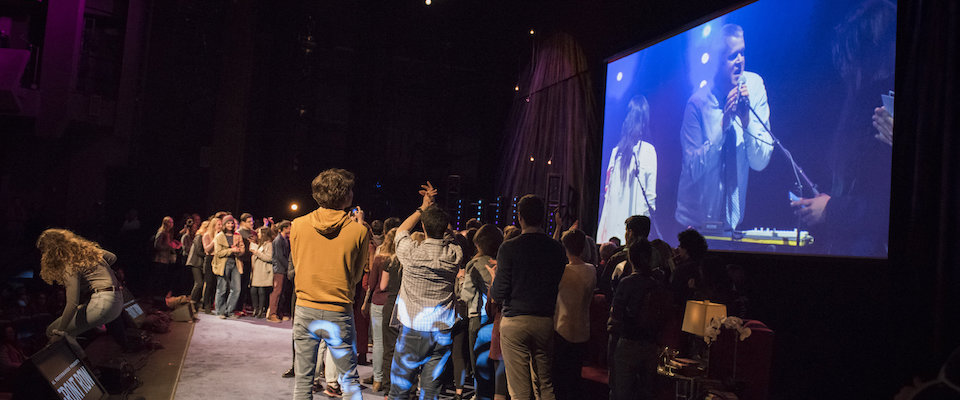Thirty years ago, passing notes in class could get you suspended. Today, students pass digital notes to one another by way of their laptops, trading class notes and jokes in a virtual chat room online. But rather than distracting students, the digital chatter might actually help learning, according to a research project by two graduate students in the Berkeley School of Information, or iSchool.
Grad students created the chat room in 2004 as a virtual space for iSchool students to “pass notes” in class. With the prevalence of laptops and campuswide wireless Internet, it’s become an integral part of classroom learning, and is the longest-running backchannel (a chat room whose users are gathered in the same physical space) in existence. Few professors knew it existed before iSchool grad students Jen King and Matthew Rothenberg presented their findings last year. Through surveys and a review of chat transcripts they determined that, beyond the joking and gossip, participants actually use the backchannel to teach one another, interact with the class material, and critique the course presentation. The chat conversation goes something like this:
you know what [the instructor] needs to do? he needs to introduce this stuff BEFORE he gives the scary graph
haha
i liked the graph, but yeah, not enough context
i think he should do the whole lecture with pictures of baby animals on the slides instead.
Though some instructors are concerned about being the butt of chat room jokes, King and Rothenberg say online debate about a prof’s teaching method does have its benefits. “Some of the people definitely reported to us that even the process of asking a ‘why-are-we-doing-this?’ question in the backchannel ended up reengaging them in the material,” says Rothenberg, who is now a social technologist at Yahoo! and Flickr.
At times the buzz even “bubbles up” into classroom conversation, says Rothenberg. Seventy-eight percent of users vet questions with other students before asking them in class: If chat participants agree a question should be asked, they encourage their peer with to-the-point messages like “SAY IT!” and “NOW!” or offer to serve as a question-asking proxy for the shyer party, King says.
For now, the backchannel is a students-only zone, which King and Rothenberg don’t see changing. Once, some teaching assistants entered the backchannel. But when it became apparent they were just there to monitor the chat rather than “play along,” King says, students ditched the backchannel for an entirely new site: a back-backchannel.
From the January February 2007 25 Brilliant California Ideas issue of California.




















